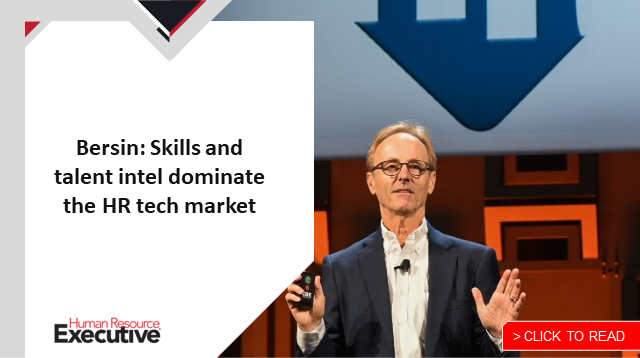While today’s chief human resource officers are tasked with leading with empathy, particularly given the ongoing transformations in the world of work, they also need to keep technology as a primary part of the equation, said experts at this month’s HR Tech Conference in Las Vegas. They may not need to be top-tier technology experts who write their own code, but HR execs do need to align closely with their organization’s technologists in order to stay competitive in a tight labor market.
“We need to focus on human elements and then get technology to support us,” said Deborah DeVerna, chief human resources officer at financial analyst firm Qontigo during the closing keynote panel at HR Tech.
“We need to know how to partner with tech professionals and we need to know how to speak their language, bring them in and be close partners,” she said.
Christy Pambianchi, executive vice president and chief people officer of Intel Corp., echoed DeVerna’s opening remarks.
“We need technology to help us to compete and be attractive to top talent,” she said. She added that, because technology is ubiquitous in our everyday lives, employees want the same experience at work.
“How can we make the workplace as intuitive as [it is in employees’] private lives?” she asked. “We need to be technically curious, and this is part of the future. It’s exciting.”
Working with tech
With the potential for tech to provide a competitive advantage, partnering with your organization’s tech team should be priority No. 1 in the strategy to win the war for talent, said Lisa Buckingham, founder of Lisa Buckingham Consulting. She is also the former executive vice president and chief people, place and brand officer at Lincoln Financial Group and moderated the HR Tech Conference keynote panel.
 To better prepare themselves to partner with tech teams, Pambianchi recommended that HR leaders strive to be lifelong learners, especially when addressing demanding and complex initiatives such as talent acquisition.
To better prepare themselves to partner with tech teams, Pambianchi recommended that HR leaders strive to be lifelong learners, especially when addressing demanding and complex initiatives such as talent acquisition.
“How do you stay current in technology to address risks in TA teams?” she asked. “We rely heavily on our chief information officers and the HRIS teams to build a five- to 10-year roadmap.”
DeVerna said the HR team needs to deeply understand the tech needs of the workforce to bring to the table as decisions with technology leaders are being made. “You need a vision of your employee experience. What does this look like to drive the tech solutions?” she said. DeVerna said that she regularly asks what benefits, support and technology matters to her fellow employees.
Buckingham agreed. “If we are not connecting the employees, the adoption rate of new tech will be frustrating at best,” she said.
Lessons learned from a global pandemic
The power of technology in supporting employee needs has been clearly illustrated over the last two-plus years of COVID and subsequent growth of the hybrid and remote workforce.
According to Pambianchi, Intel was “saved” by technology it had in place at the time of the lockdown—such as video conferencing and other online collaboration tools—but was not using on a regular basis.
“Intel had to develop digital apps for customers in their homes and using these solutions for this [remote work plan] was crowdsourced,” said Pambianchi. “If we had decided to work from home on our own without a pandemic, it would have taken five years to implement.”
During the pandemic, the panelists agreed, their firms found opportunities to rely on new technology that provided new dimensions to employee experience.
 “COVID was the democratization of the employee experience, thanks to Zoom and Slack,” said DeVerna. “We had, in some ways, a more intimate experience than before. I missed the office but did you know what your co-worker’s home or dog looked like?”
“COVID was the democratization of the employee experience, thanks to Zoom and Slack,” said DeVerna. “We had, in some ways, a more intimate experience than before. I missed the office but did you know what your co-worker’s home or dog looked like?”
“We as CHROs became way more accessible, even if it was a 15-minute meeting,” added Buckingham, noting that HR leaders were seeing people working off of ironing boards and other makeshift workspaces—and that exposure enabled them to develop new strategies to meet employee needs.
Buckingham added, “I hope we don’t lose that sense of attention and care.”

